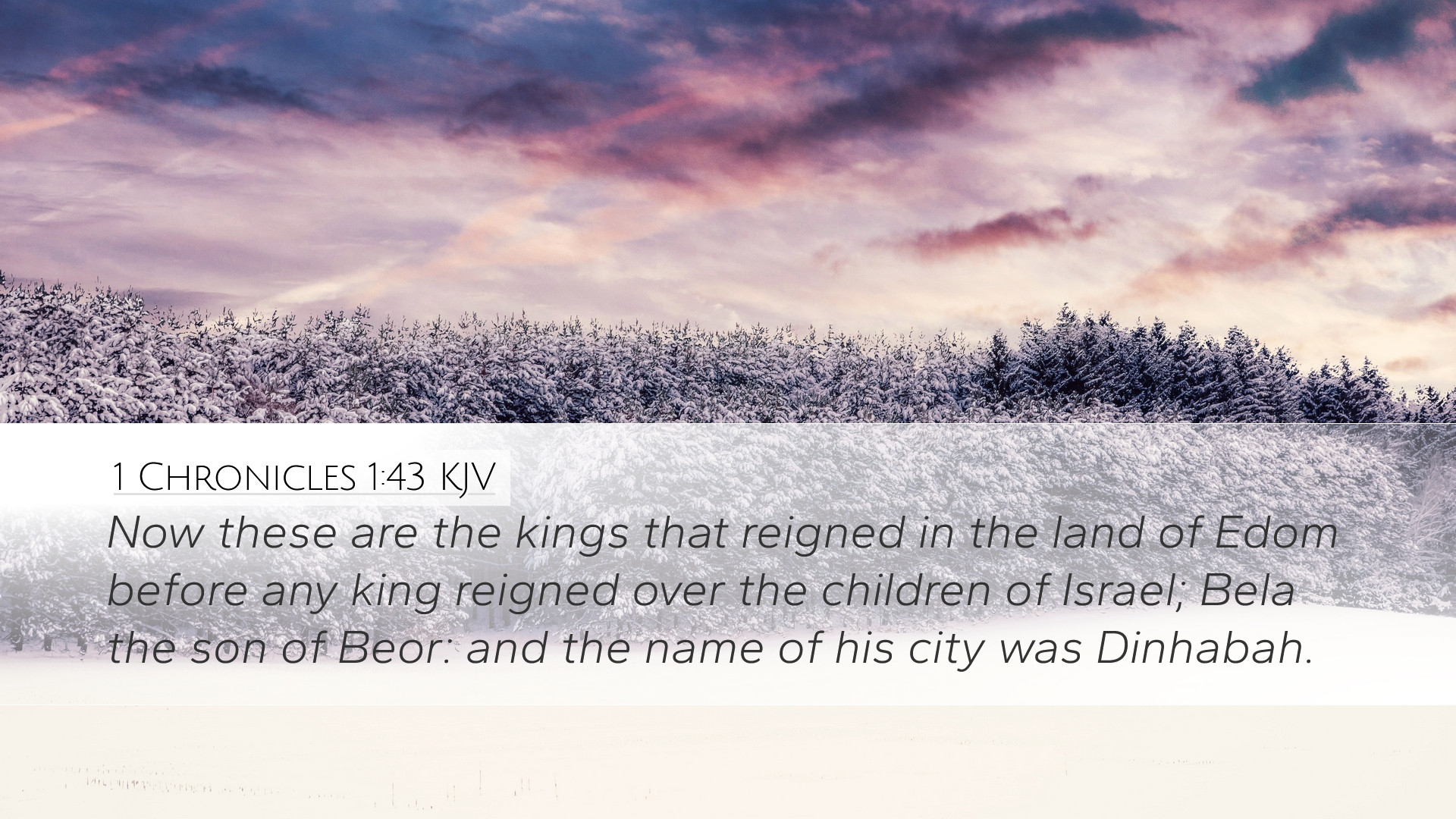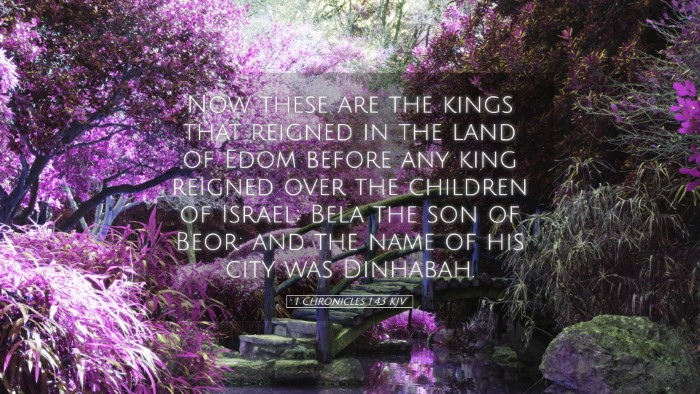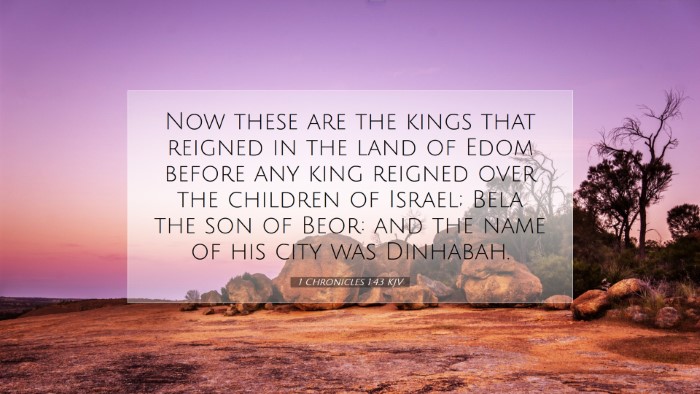Commentary on 1 Chronicles 1:43
Bible Verse: 1 Chronicles 1:43 - "Now these are the kings that reigned in the land of Edom before there reigned any king over the children of Israel."
Contextual Analysis
The opening chapters of 1 Chronicles provide a genealogical account that traces the lineage of Israel, ultimately leading to significant figures and events in Israel's history. The reference to Edom's kings in 1 Chronicles 1:43 emphasizes an important historical point about the distinction between Edom and Israel, highlighting the unique covenantal relationship that Israel had with God.
The Significance of Edom
The kingdom of Edom, descended from Esau (Jacob's brother), holds an intricate place in biblical history. The verse underscores the idea that Edom had an organized monarchical system prior to the establishment of Israel's monarchy. This situates Edom as notable in the early history of the region, illustrating divergences in the destinies of the two nations.
Key Insights from Public Domain Commentaries
-
Matthew Henry:
Henry notes that the mention of Edom is significant because it reflects God's providential order. The kings of Edom reigned before Israel had kings, which serves to highlight the sovereignty of God in establishing authority within nations. He suggests that the existence of Edomite kings points to the broader historical context of divine governance.
-
Albert Barnes:
Barnes expounds on the genealogical purpose of this verse, connecting it to the larger framework of Israel’s history. He indicates that the writers of Chronicles aimed to affirm the Israelite identity amidst surrounding nations, and showcasing Edom's past kings emphasized God’s favor towards Israel and His plan for them, contrasting it with Edom's legacy.
-
Adam Clarke:
Clarke adds depth by viewing Edom's rule as an illustration of human affairs under divine providence. He points out that while Edom had kings, Israel's future monarchs were foreordained by God, thus asserting the theological premise that earthly powers rise and fall according to God's will. This highlights a divinely constructed timeline wherein Israel’s kingship would ultimately fulfill God's covenantal promises.
Theological Implications
This verse raises critical theological themes relevant to modern readers:
- Divine Sovereignty: The narrative underscores God's control over the rise and fall of kingdoms, emphasizing that God is sovereign over all nations, not just Israel.
- Covenantal Context: The distinction made between Edom and Israel enhances the understanding of God’s covenant with Israel, showcasing the special relationship that Israel has with God in contrast to other nations.
Reflection for Pastoral Application
Pastors and leaders can draw from this commentary to teach congregations about God’s sovereignty and the importance of understanding historical contexts in scripture. Emphasizing God's control over nations could serve as comfort during times of societal unrest, reminding believers that God maintains authority over the unfolding of human history.
Conclusion
In summary, 1 Chronicles 1:43 is a significant verse that serves not only as a historical marker identifying Edom’s kingship but also as a theological reflection on God's sovereign governance. Insights from biblical commentaries enrich our understanding, providing a layered perspective that is valuable for pastors, theologians, and Bible scholars alike. It challenges the reader to consider God’s overarching narrative throughout scripture, as well as its implications for the church today.


